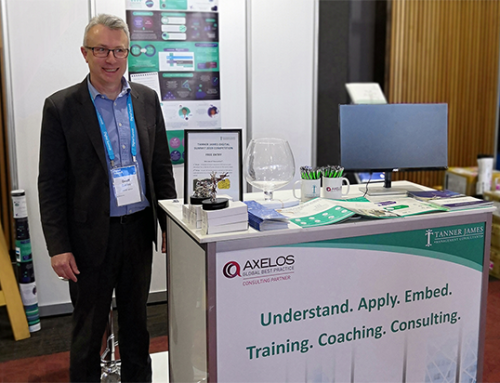You work in a major public service department or agency. It has an Enterprise PMO of some description – the team that prescribes programme and project management frameworks, and reports on major initiatives to top-level senior executives.
It has been around for a while, and there is a feeling that now is the time to take it to the next level. Here are some things you can do, based upon your role and relationship to the EPMO.
If you are the Senior Executive who owns the EPMO
Set the Vision. I don’t mean sign-off a Vision Statement, that is secondary. What I mean is create a true shared image in everyone’s minds as to what the EPMO will become. It is critically important that the EPMO team have something to aspire to. A true sense of purpose. You might use an analogy to explain the team’s role. It should convey to individuals who they will be, not what they will do.
You must support the EPMO team members. Involve yourself in their world. Understand their day-to-day activities. Ask them what they find difficult; what resources they need; how they would spend their time if it was entirely their choice. Provide them with opportunities to build their capability and broaden their experience.
You must also be an advocate for the EPMO. Speak up for them in senior forums. Explain how they add value to your organisation. Offer them as a resource that can assist important pieces of work. Seek feedback on what your peers want the EPMO to do.
If you work in the EPMO
Focus on Why. It is almost inevitable that as an EPMO team member you will be under pressure – but it is often pressure that is not seen or understood by others outside your team.
In this context focusing on why things need to be done, not just what needs to be done, is helpful for those inside your team and outside your team.
Inside your team, focusing on “why” will help create a shared view of priorities and what is important.
Outside your team, focusing on “why” will help your stakeholders – e.g. programme and project managers and support areas – understand the purpose of what you are asking them to do, and how it is of value to them.
It is worth stepping back if you find yourself unsure of the “why”, or frequently working on the basis of “because someone asked for it” rather than being clear about intent. Ask questions of your peers and leaders, examine principles, and consider the broader context. Offer support to teams to help them work through mandatory processes such as reporting. This will give you insights into how to optimize things. Look for ways to remove what isn’t necessary – trim templates, simplify processes.
If you are a Programme or Project Sponsor
Offer Constructive Challenge. As well as setting direction for a programme or project, a good sponsor looks for ways to improve the way the initiative is being managed. This means understanding corporate requirements, and understanding what good practice looks like. A well managed programme or project will demonstrate compliance and good practice, not compliance or good practice.
If you don’t understand why something is being done, or indeed why something isn’t being done, ask. Your programme or project manager should always be able to give you a clear answer, such as how a particular management principle needs to be applied or why a piece of information is required. If they are unable to do so, try engaging with the EPMO – they should be able to provide a clear explanation.
If you work on a programme or project team
Engage with the EPMO. Most departments and agencies have plenty of information on the Intranet that sets out what the programme and project lifecycle is, usually accompanied by a suite of templates. For a variety of reasons – including staff turnover, structural changes, and different incarnations of the EPMO – these lifecycles and templates change over time, and their original purpose can become lost. To counter this it is a good idea to engage with the EPMO. Speak to them about your programme or project, and what you need to be aware of from their perspective.
Building a strong relationship with the EPMO is important for every programme or project manager, not least as a good EPMO will endeavour to provide you support, not just require compliance.
If you find your delivery approach doesn’t appear to be catered for by the EPMO intranet – for example if you are using specific Agile approaches – then speak to the EPMO. Perhaps you can volunteer to pilot what will become a new organisational standard.
Do you agree?
Please comment on the blog itself or via Linked In.
Want to know more?
Tanner James offers a range of coaching services to support Senior Executives, EPMOs and programme and project managers.
A good start point is a “Best Practice Comparison”, which examines individual programme or project practices against the principles and themes of frameworks such as MSP or PRINCE2 Agile, and also against the requirements of your department/agency lifecycle and templates. This is a great way to achieve practical alignment between the EPMO, programmes/projects and global best practice.
To find our more feel free to call me personally on 0407 404 688 or email me at john.howarth@tannerjames.com.au






Leave A Comment